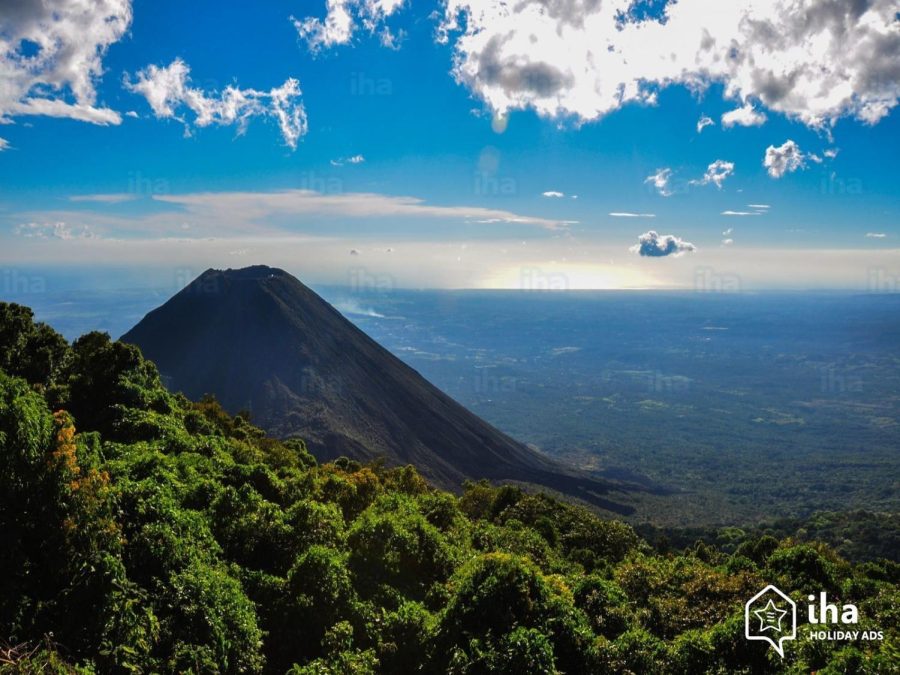Human Rights Violations Made in the 12-Year Conflict in El Salvador
November 5, 2021
The Salvadoran Civil war was a brutal conflict between the military-led junta government and the FMLN guerilla group. It lasted from October 15th, 1979, to January 16th, 1992. More than 70,000 Salvadoran civilians were killed during this period of time. Some were killed in massacres, summary executions, or bombings. Many human rights violations also occurred during this time by both sides. Many people were driven out of their homes, innocent people were executed, and even children were being forced to join in combat.
The conflict had been boiling ever since 1932, when Salvadoran soldiers led by General Maximilliano Martinez, suppressed a rebellion by killing around 30,000 people (most of whom were indigenous) for protesting about the unfair treatment of the government. Anyone who was simply thought of as being associated with the rebellion was killed. This massacre was later referred to as La Matanza (“The Massacre”). Though the government remained in control for the next 50 years, the 12-year war to come was rooted in this brutal massacre.
In 1979, President Carlos Humberto Romero was overthrown by a coup led by young military officers. The military coup promised to better the living conditions in the country. When they failed to do so the five main guerilla groups in El Salvador joined together to create the Farabundo Marti Liberation National Front or the FMLN. This led to the government killing anti-coup protestors and the guerilla group killing anti-disorder protestors. This chaos marked the beginning of the 12-year war and more than a decade of torment and violation to the people of El Salvador.
A large issue in the country during those 12 years was the number of human rights violations that were committed by both the government and the FMLN. Innocent civilians would be mercilessly executed by the national guard if there was even the slightest suspicion of them being involved in the guerillas.
Jose Nolasco was 14 years old when he, his two brothers, and their friends were drinking soda by the convenience store when military officers suddenly came up to them and accused them of being in the guerilla and placing bombs in the area. “We were all under the age of 18, just playing around as teens tend to do. It had been a happy day up until then. I remember there were about 15 of us hanging out that day and only three of us came out alive.”
Jose states that the soldiers first let his younger brother and his friend leave, they were about 12 years old at the time. Right when they were getting Jose into their truck to take him who knows where one of the soldiers stopped Jose. “He told me I had 1 minute to run out of his sight, so I ran like my life depended on it because it literally did.”
A couple of weeks later, Jose states that “one of our neighbors had found a bunch of dead bodies by the side of the road and wanted me and my family to go check it out. It wasn’t unusual for dead bodies to be laying around except this time they belonged to my older brother and the rest of our friends.”
The FMLN also committed many acts of violence against anyone involved in the government and their families. This included mayors, justices of the peace, and soldiers of the armed forces. For example, Fanny Paniagua’s father was a justice of the peace in their town of Santa Clara when men from the FMLN forced themselves into their home, stole things like medicine, and ended the peace of their household. “Just the year prior they had publicly executed the mayor of the town, and my dad had taken his place. That’s what cost him his life.”
Fanny states that she was 9 years old when men from the guerilla raided her home. “I remember my older sister hiding me under the table when I heard six loud gunshots followed by my mother’s screams. I soon learned that my dad and brother had been shot by a 13-year-old member of the FMLN. A couple of days later, they came back to kill my mom, sisters, and me. We barely escaped with our lives and had no choice but to leave our house and old lives behind us. In a blink of an eye, we had lost everything we had ever known.”
Another human rights violation that was committed was the recruitment of child soldiers. Children would be scouted and forced to join the army without any say in the matter. Jose Nolasco states, “I was 17 at the time and was on the bus on my way to San Salvador when soldiers came on to the bus and stated that they were scouting men for the national guard. Most of us young men on the bus started preparing for what was to come because it’s not like we had much of a choice of whether we wanted to join or not. Whether we lived or not was now at the mercy of God.”
In January 1992, both sides signed the Chapultepec Peace Accords in Mexico City. The final results of the war were the death of about 75,000 Salvadorans, the destruction of the economy, and the trauma of those who survived the war. When asked her overall thoughts about the war Fanny commented, “12-years of destruction and horrors, and all we gained from it is a lifetime of being tormented by memories we rather forget. The lesson here is that why do we as humans result to war when there are so many easier ways to attain peace.”



